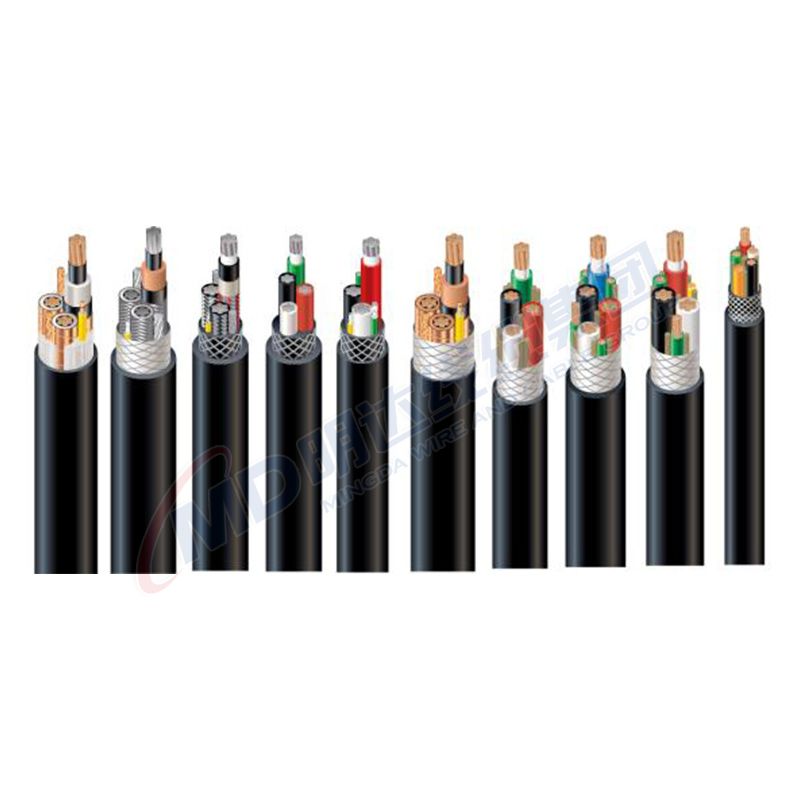Nov . 11, 2024 02:44 Back to list
Single-Core Cable Wire for Efficient Electrical Connectivity and Reliability in Various Applications
Understanding Single Core Cable Wires Their Importance and Applications
Single core cable wires are a fundamental component in the world of electrical engineering and wiring systems. As the name suggests, these wires consist of a single conductor that facilitates the flow of electrical current. They are widely used in various applications due to their simplicity, efficiency, and effectiveness in transmitting power.
What is Single Core Cable Wire?
A single core cable wire typically consists of one solid or stranded metal wire, usually made of copper or aluminum. The structure is designed to minimize resistance and maximize conductivity, ensuring that electricity passes through with minimal energy loss. The insulating layer surrounding the conductor is crucial, as it protects the wire from external factors that could lead to faults or failures, such as moisture, heat, and mechanical stress.
Characteristics of Single Core Cable Wires
1. Simplicity One of the key features of single core wires is their straightforward design. Since they have only one conductor, they are less complex compared to multi-core cables, making installation easier.
2. Flexibility Stranded single core wires offer greater flexibility than solid ones. This makes them ideal for applications where movement or bending is required, such as in robotics or machinery that experience frequent motion.
3. Durability The insulation used in single core cables is often made from materials such as PVC or rubber, which can withstand varying environmental conditions. This durability ensures a longer lifespan and reduces the need for frequent replacements.
4. Cost-Effectiveness Since single core cables require fewer materials and have a simpler design, they are typically more affordable than multi-core cables. This cost-effectiveness makes them an attractive option for various applications, especially in residential and commercial wiring.
single core cable wire

Applications of Single Core Cable Wires
Single core cable wires are utilized in numerous applications across different sectors
1. Electrical Installations They are commonly used in fixed wiring for homes and businesses. For instance, they can be found in lighting circuits, power distribution systems, and home appliance connections.
2. Instrumentation In industrial settings, single core wires are often employed for instrument cables that connect sensors and control equipment. Their reliability is essential for maintaining accurate measurements and controlling processes.
3. Automation and Control Systems Single core cables are ideal for connecting various components in automation systems, such as relays, contactors, and actuators. Their ability to handle current effectively makes them vital for ensuring the smooth operation of these systems.
4. Power Distribution In electrical grids and substations, single core wires are used in overhead and underground power distribution lines. Their robust nature allows them to handle high voltage levels efficiently.
Conclusion
In conclusion, single core cable wires are an integral part of modern electrical systems. Their simple design, durability, and versatility make them suitable for a wide range of applications, from residential wiring to industrial automation. As technology continues to evolve and demand for efficient electrical solutions increases, single core cable wires will remain a key player in ensuring reliable and effective power transmission. Whether you are an engineer, technician, or a DIY enthusiast, understanding the significance of single core cables can enhance your approach to electrical projects and help ensure safety and efficiency in all applications.
Share
-
Reliable Wafer Type Butterfly Valves for Every IndustryNewsJul.25,2025
-
Reliable Flow Control Begins with the Right Ball Check ValveNewsJul.25,2025
-
Precision Flow Control Starts with Quality ValvesNewsJul.25,2025
-
Industrial Flow Control ReliabilityNewsJul.25,2025
-
Engineered for Efficiency Gate Valves That Power Industrial PerformanceNewsJul.25,2025
-
Empowering Infrastructure Through Quality ManufacturingNewsJul.25,2025


